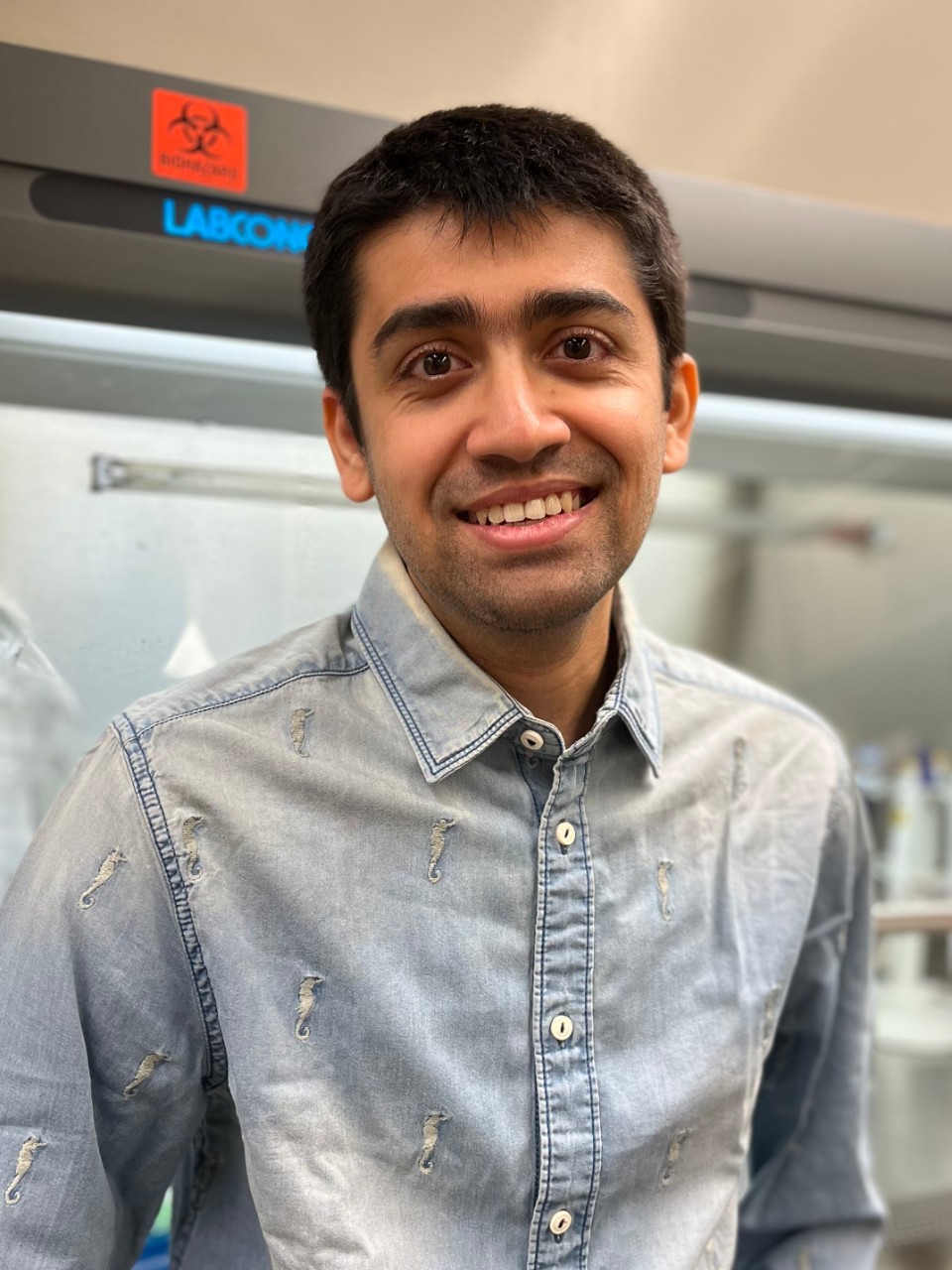
Chemical engineering student researches nanoparticle drug delivery
Vishnu Sriram hopes his research could lead to improved cancer treatments
Vishnu Sriram came to the University of Cincinnati from India to pursue a master’s in chemical engineering. He decided to stay at UC for his Ph.D. to research nanoparticle gene and drug delivery that could someday lead to improved cancer treatments. He was named Graduate Student Engineer of the Month by the UC College of Engineering and Applied Science.
Why did you choose UC for your master's and why did you stay for your Ph.D.?

UC has always had a good reputation and the chemical engineering programs offered here allow graduate students to focus in specialized areas of study, such as catalysis, water treatment, nanomedicine, etc. Many of our professors work in innovative research fields. They impart knowledge that helps us develop unique skillsets that pave the way for students to secure good positions in industry. They’re also very encouraging if the student wishes to pursue a career in academia.
Additionally, many professors work and collaborate with other departments. This kind of multi-disciplinary interaction and exposure helps broaden our prospects. After my master's, I had an opportunity to move elsewhere, but the opportunity to work in the field of drug and gene delivery to treat cancer was exciting and it weighed heavily on my decision to continue at UC.
Why did you choose to study chemical engineering?
I was always fascinated by and drawn to the subject. Back in school, I enjoyed my time spent in the chemistry lab the most. I was also very good at math, so choosing engineering was a no-brainer. I was also inspired by my dad, who was a good innovator himself and members of my family who excelled in science. My family encouraged me to pursue the subject as it had many exciting career options.
Describe your research work.
For my Ph.D. study, I had the opportunity to work in the field of nanomedicine focused on gene and drug delivery to treat cancer. I make biodegradable and biocompatible delivery systems including polymeric and lipid nanoparticles which are used to carry chemotherapeutic drugs or genetic material such as mRNA. My work entails the synthesis of organic molecules, engineering them into nanoparticles and evaluating their performance against cells in vitro. I would like to test its performance in pre-clinical models to evaluate the potential of these drug delivery systems to treat cancer.
What is the end goal of your research work?
I’m working towards a unique delivery system that can exhibit good cell-killing ability against cancer in vitro and in pre-clinical models. Even though there has been tremendous progress in the way we treat cancer, there are several barriers that need to be overcome. Currently, there are few nanoparticle systems that can successfully perform in vivo and is less toxic. I aim to produce new biodegradable and biocompatible nanoparticle designs that perform well both in vitro and in vivo models.
What motivates you to work hard every day?
My work could potentially have a positive impact on society and change people’s lives. It could change how we treat terminal diseases such as cancer, but there is a long way to go.
Additionally, as an international student, I feel the need to go above and beyond and push myself to keep working towards my goals, so that my decision to pursue this and move away from my family is vindicated.
What are your future plans after completing your degree?
I look forward to joining the industry after I graduate. I hope to have gained skillsets that will help me work closely with patients and offer solutions. I’m also very excited to see what the world of chemical engineering has to offer outside of UC.
Related Stories
Exploring Careers in Robotics Engineering: A Path to the Future
March 28, 2025
Discover robotics engineering careers: skills, paths, and opportunities in manufacturing, healthcare, and space. Explore salaries and how to start at UC’s CEAS. Shape the future with innovation!
UC mechanical engineering student helps send science to the Moon...
March 28, 2025
UC student Ilyas Malik aids Firefly's lunar mission for NASA's CLPS. Explore his journey, UC's co-op impact, and aerospace insights. Discover how education transforms career paths in space exploration.
UC welcomes new engineering faculty
March 28, 2025
UC welcomes three new faculty this spring in mechanical engineering, aerospace engineering and a new department head in engineering education.
